Login
Registration enables users to use special features of this website, such as past
order histories, retained contact details for faster checkout, review submissions, and special promotions.
order histories, retained contact details for faster checkout, review submissions, and special promotions.
Forgot password?
Registration enables users to use special features of this website, such as past
order histories, retained contact details for faster checkout, review submissions, and special promotions.
order histories, retained contact details for faster checkout, review submissions, and special promotions.
Quick Order
Products
Antibodies
ELISA and Assay Kits
Research Areas
Infectious Disease
Resources
Purchasing
Reference Material
Contact Us
Location
Corporate Headquarters
Vector Laboratories, Inc.
6737 Mowry Ave
Newark, CA 94560
United States
Telephone Numbers
Customer Service: (800) 227-6666 / (650) 697-3600
Contact Us
Additional Contact Details
Login
Registration enables users to use special features of this website, such as past
order histories, retained contact details for faster checkout, review submissions, and special promotions.
order histories, retained contact details for faster checkout, review submissions, and special promotions.
Forgot password?
Registration enables users to use special features of this website, such as past
order histories, retained contact details for faster checkout, review submissions, and special promotions.
order histories, retained contact details for faster checkout, review submissions, and special promotions.
Quick Order
PathPlusTM CD63 Antibodies
CD63 (CD63 antigen, LAMP-3, NKI-C3, ME491, melanoma associated antigen CD63) is a member of the tetraspanin integral membrane glycoprotein family that plays a role in intracellular vesicular transport and is involved in cell morphology, motility, and proliferation. CD63 is mainly associated with intracellular vesicles (eg, lysosomes and endosomes) but can be expressed at the cell surface and secreted as exosomes through fusion of endosomes with the plasma membrane. It is broadly expressed in the body, including within gastric parietal cells, platelets, endothelial cells, fibroblasts, mast cells, brain white matter, renal tubules, macrophages, dendritic cells, T-lymphocytes, neutrophils, and many epithelial cells. CD63 is also associated with tumor progression, where the protein is overexpressed during the early stages and reduced as invasion and malignancy progresses (melanomas, ovarian cancers, lung, breast and colon carcinomas). Antibodies to CD63 can be used to identify melanoma and melanocytic tumors and other tumors.
References: Exp Cell Res 2009: 1484-1592; Thromb Res. 2010;125(2):152-158. doi: 10.1016/j.thromres.2009.07.005; Cytometry A. 2004;61(1):62-68. doi: 10.1002/cyto.a.20068; Dev Cell. 2011;21(4):708-721. doi: 10.1016/j.devcel.2011.08.019; Cancer Res. 1988;48(11):2955-2962. PMID: 3365686; Am J Pathol. 1998;153(3):973-983. PMID: 9736046; Arch Pathol Lab Med. 2001;125(6):751-758. doi: 10.1043/0003-9985(2001)125<0751:RA>2.0.CO;2.
7 PathPlusTM Antibodies
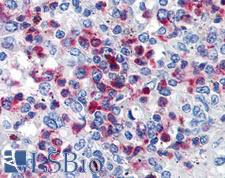
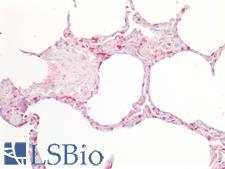
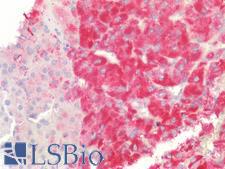
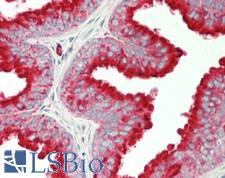
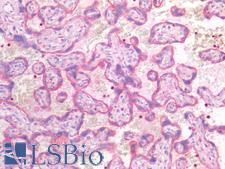
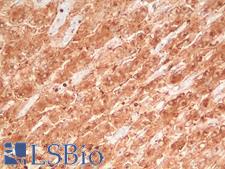
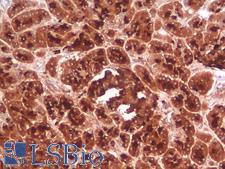
☰ Filters
Products
Antibodies
(7)
Type
Primary
(7)
Target
CD63
(7)
Reactivity
Human
(7)
Mouse
(3)
Rat
(1)
Application
IHC
(2)
IHC-P
(7)
WB
(2)
Flo
(5)
ICC
(2)
IF
(2)
IP
(1)
Host
rabbit
(2)
mouse
(5)
Product Group
PathPlus Cancer
(7)
PathPlus Cancer Pathology
(7)
Isotype
IgG
(1)
IgG1
(2)
IgG1,k
(3)
Clonality
monoclonal mc
(4)
polyclonal pc
(1)
recombinant monoclonal rmc
(2)
Clone
AHN16.1/46-4-5
(1)
LAMP3/2990R
(1)
MEM-259
(1)
MX-49.129.5
(1)
NKI/C3
(1)
rMX-49.129.5
(1)
Format
Azide-free
(1)
BSA-free
(1)
Unconjugated
(7)
Publications
No
(7)

Cancer Pathology
Cancer
CD63 Mouse anti-Human Monoclonal (MEM-259) Antibody
Human
Flo, ICC, IHC, IHC-P, IP
Unconjugated
0.1 mg/$460

Cancer Pathology
Cancer
CD63 Mouse anti-Human Monoclonal (MX-49.129.5) Antibody
Mouse, Human
Flo, IF, IHC-P, WB
Unconjugated
50 µg/$460

Cancer Pathology
Cancer
CD63 Rabbit anti-Human Polyclonal Antibody
Mouse, Rat, Human
IHC-P, WB
Unconjugated
50 µl/$460

Cancer Pathology
Cancer
CD63 Mouse anti-Human Monoclonal (AHN16.1/46-4-5) Antibody
Human
Flo, ICC, IHC, IHC-P
Unconjugated
50 µg/$375

Cancer Pathology
Cancer
CD63 Mouse anti-Human Monoclonal (Azide-free, BSA-free) (NKI/C3) Antibody
Mouse, Human
Flo, IF, IHC-P
Unconjugated, Azide-free, BSA-free
50 µg/$460

Cancer Pathology
Cancer
CD63 Rabbit anti-Human Recombinant Monoclonal (LAMP3/2990R) Antibody
Human
Flo, IHC-P
Unconjugated
100 µg/$485

Cancer Pathology
Cancer
CD63 Mouse anti-Human Recombinant Monoclonal (rMX-49.129.5) Antibody
Human
IHC-P
Unconjugated
100 µg/$525
Viewing 1-7
of 7
product results











